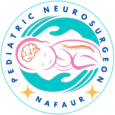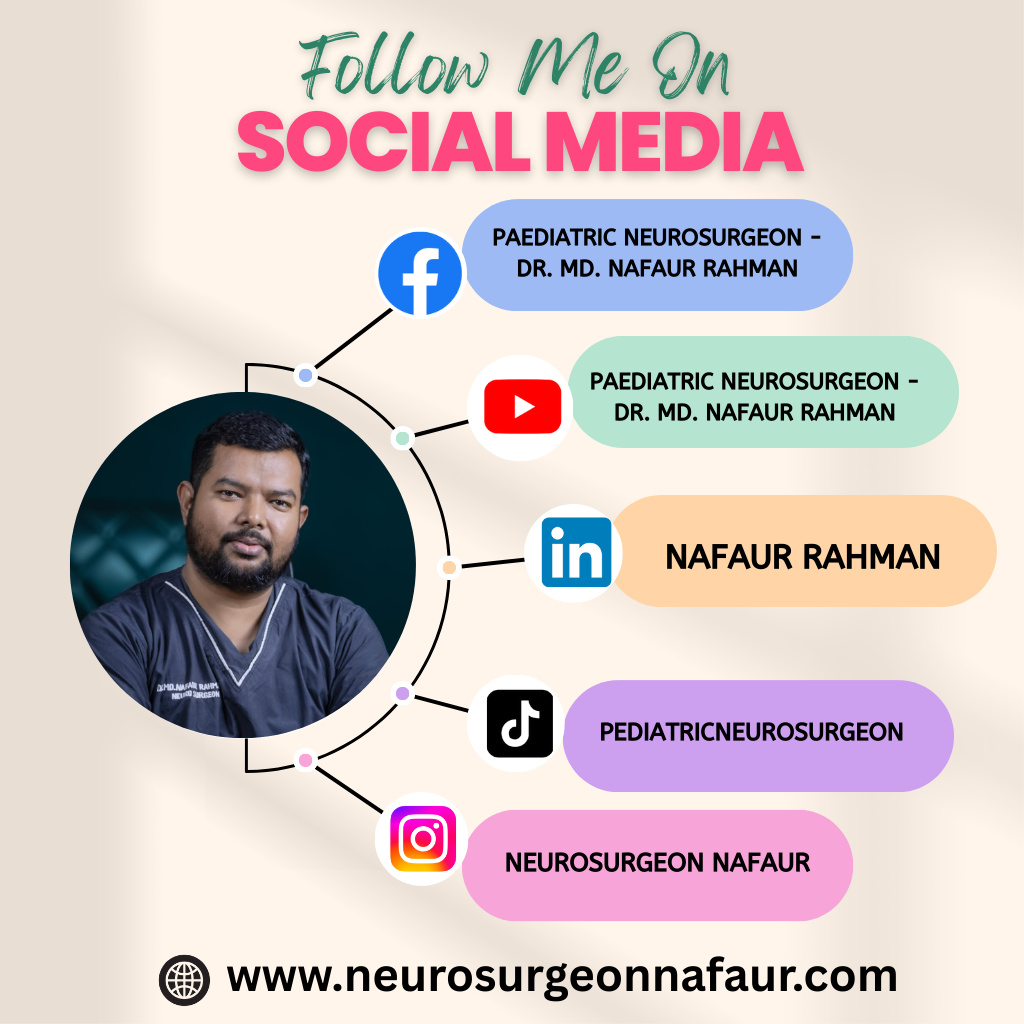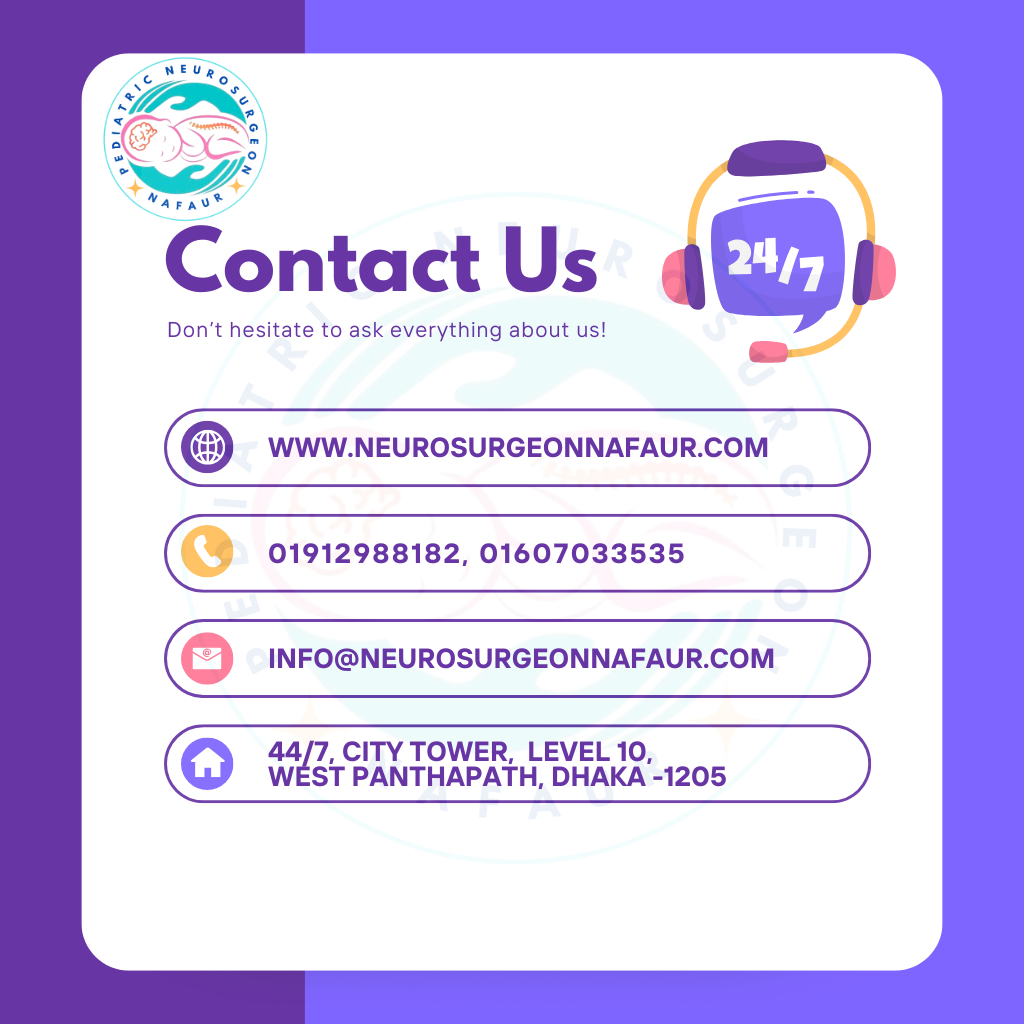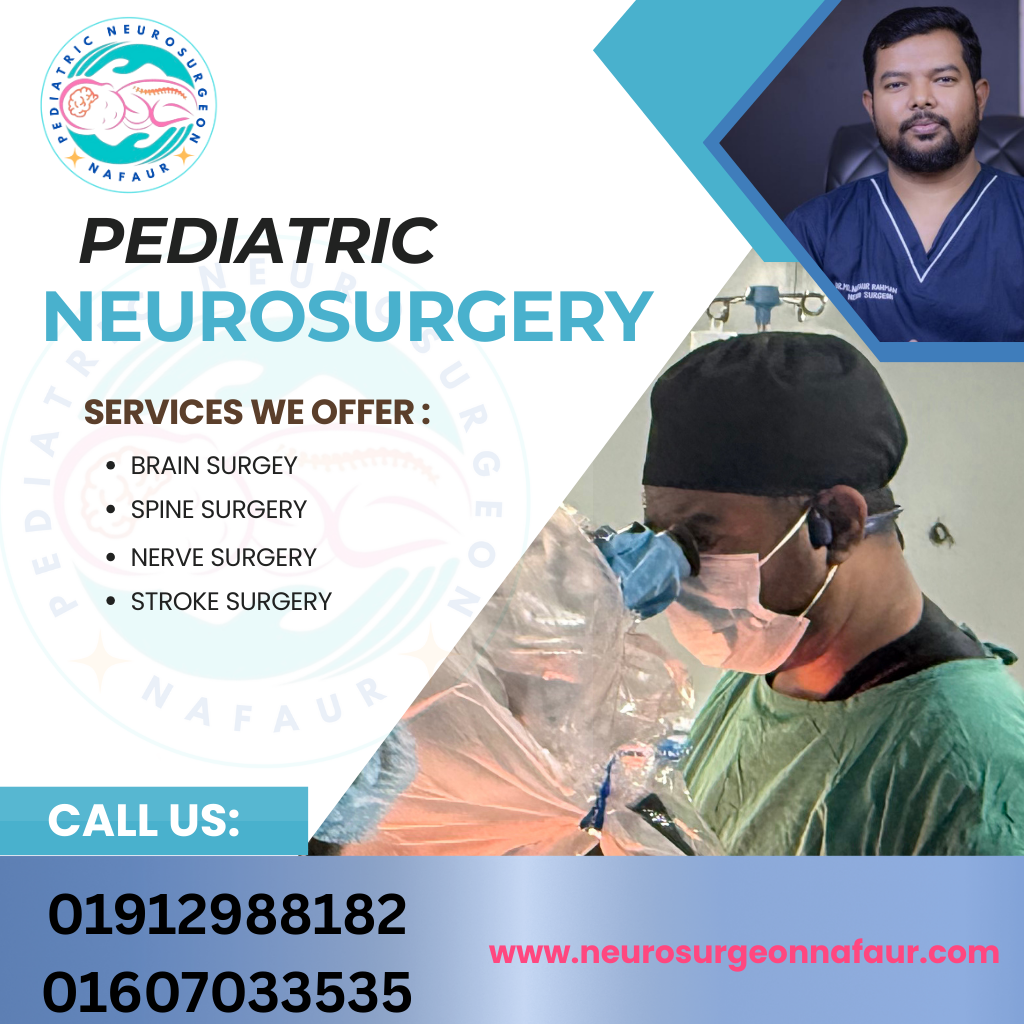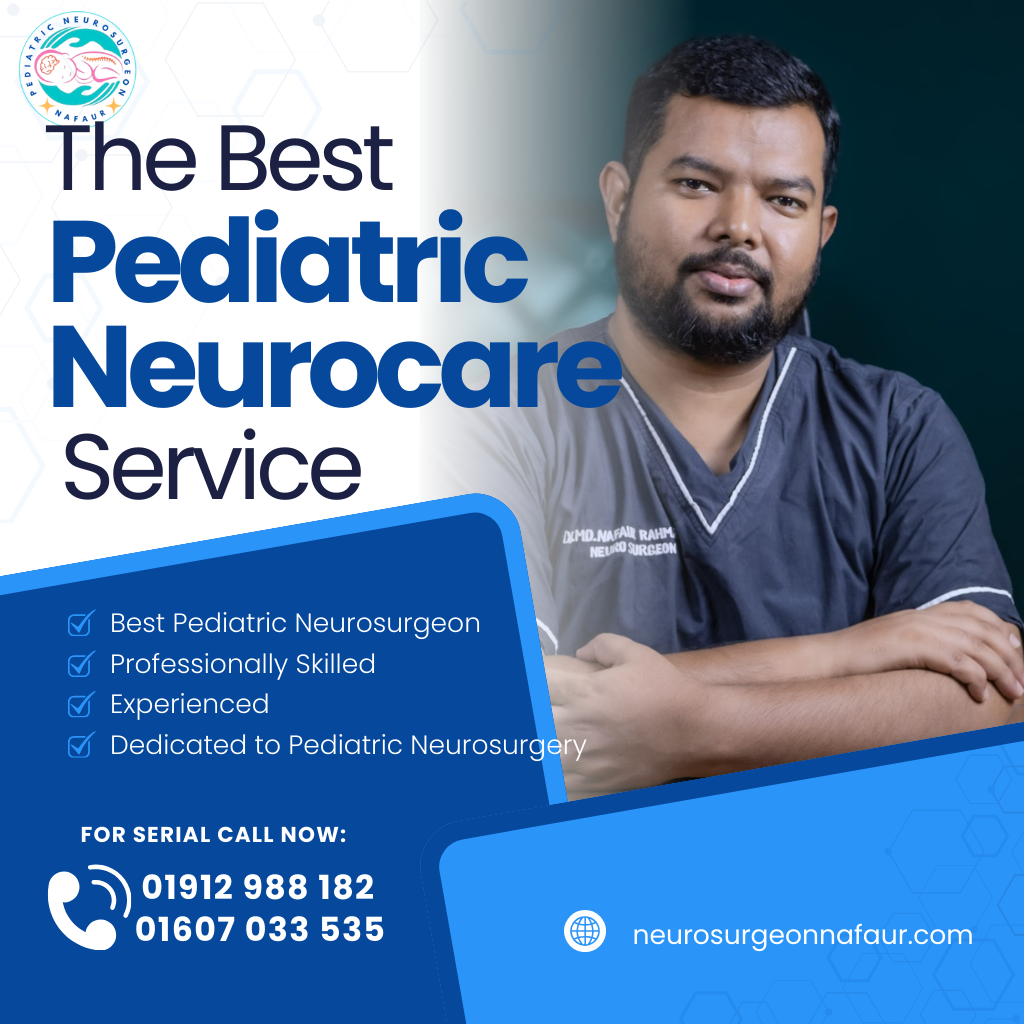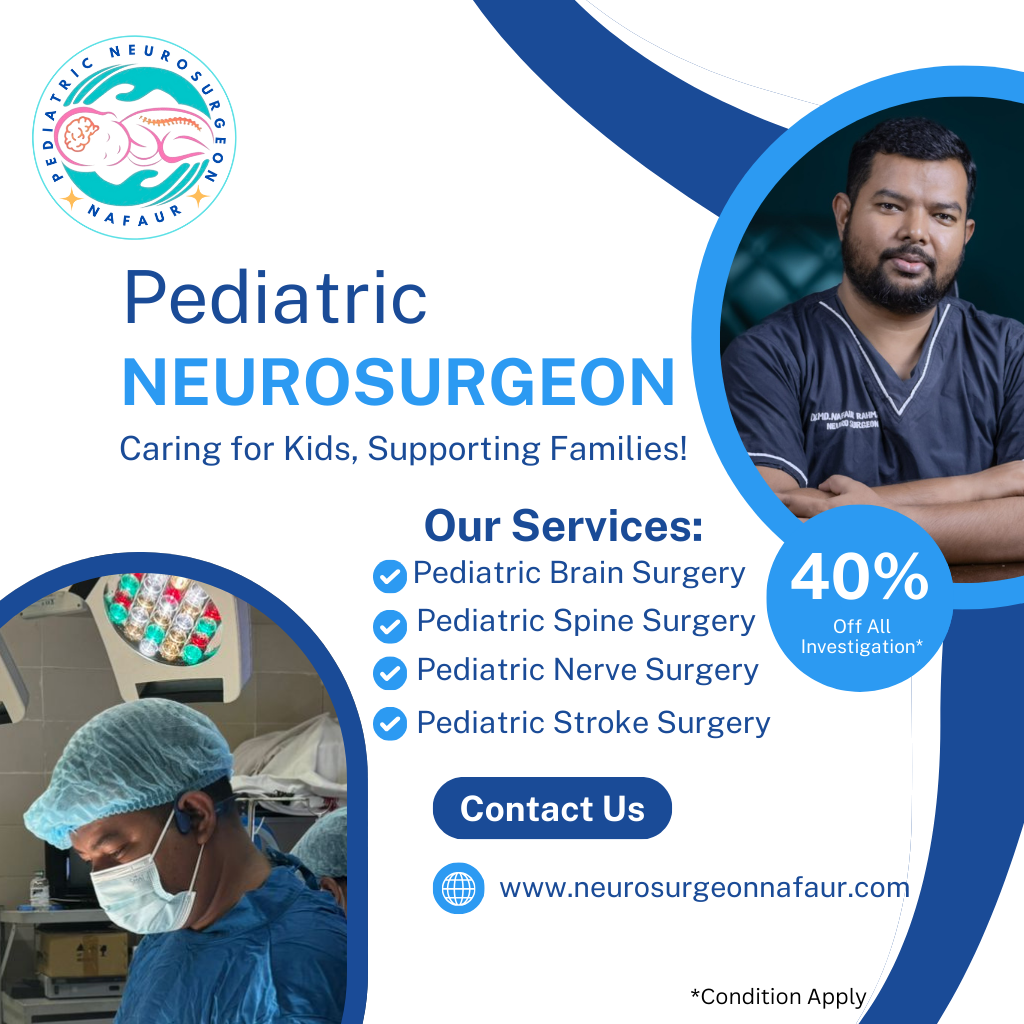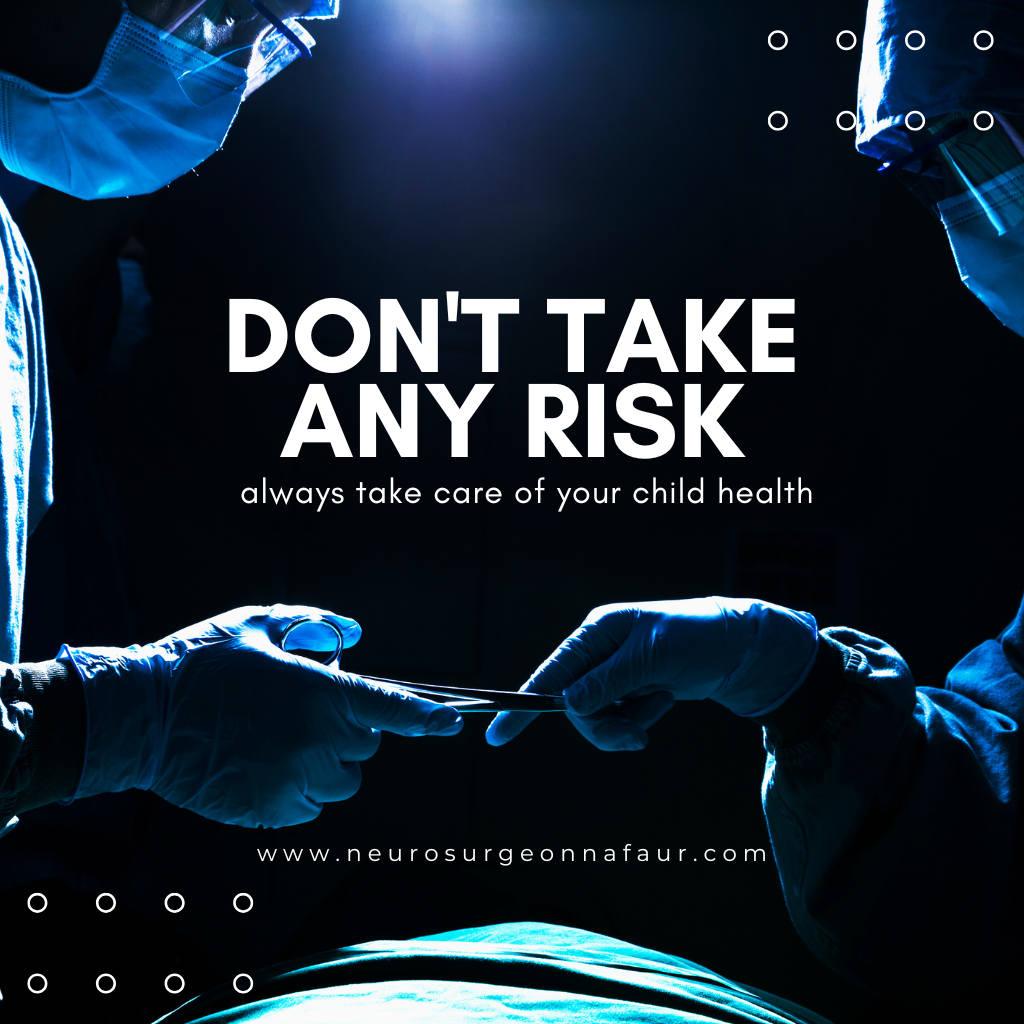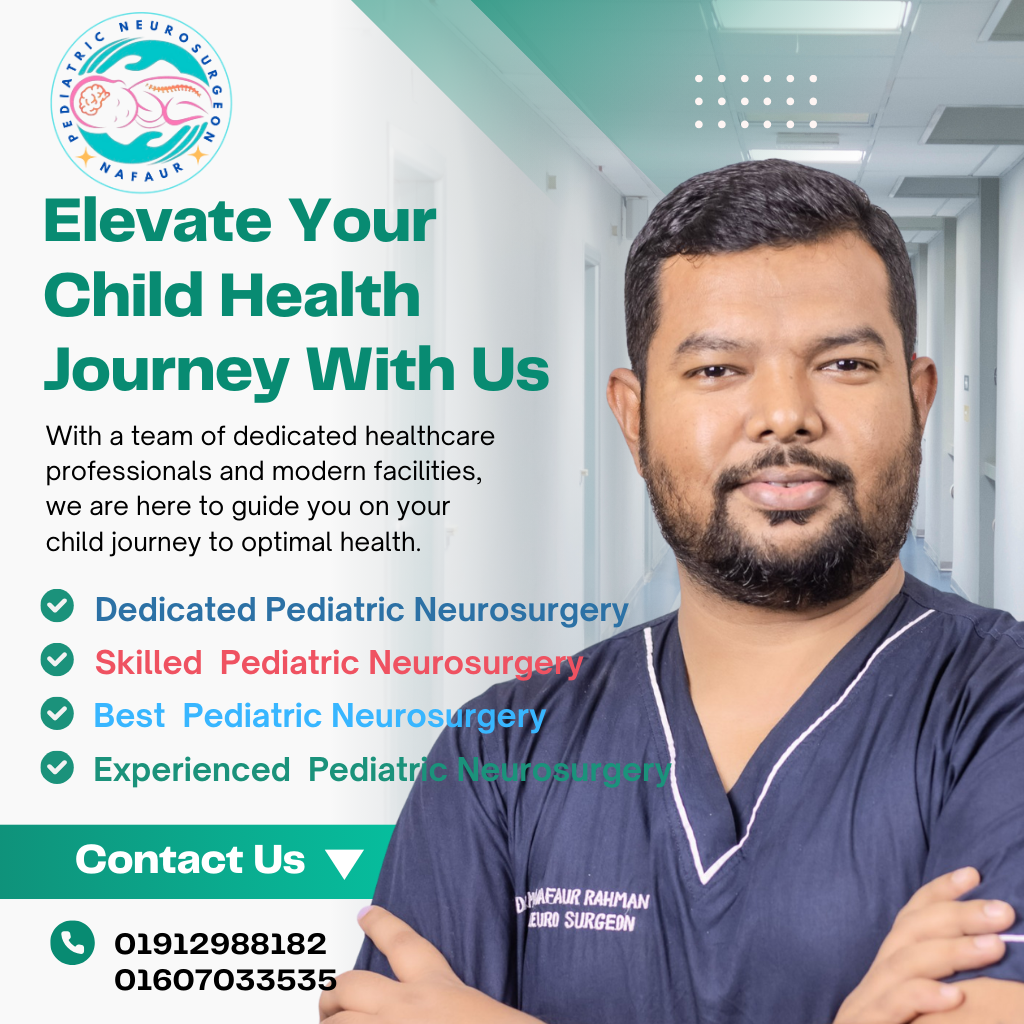Penetrating Craniocerebral Injuries
Penetrating Craniocerebral Injuries
Pediatric Penetrating Head Injuries (PHI) refer to traumatic injuries where a foreign object breaches the scalp, skull, and dura, entering the brain tissue. These life-threatening events can result from sharp objects, bullets, industrial accidents, falls onto pointed surfaces, or assault. In Bangladesh, such injuries, though uncommon, are increasingly reported due to roadside accidents, school violence, unsafe construction sites, and domestic mishaps involving sharp instruments. Pediatric PHI requires immediate and expert neurosurgical intervention, and Dr. Md. Nafaur Rahman is one of the few specialists in Bangladesh with the experience and infrastructure to manage these critically complex cases. 🛑 Causes of Penetrating Head Injuries in Bangladeshi Children While blunt trauma is more common, the following scenarios can cause PHI in children: 🔪 Knife or sharp tool injuries (often accidental at home or during play) 🪓 Machete or cleaver wounds during violence or domestic abuse 🧱 Metal rod, rebar, or wooden stake impalement from falls or construction site injuries 🔫 Firearm injuries from accidental or intentional discharge 🎆 Firework or explosive accidents (particularly during festivals) 🧲 Penetration from industrial tools (e.g., nail guns, screwdrivers) 🏠 Fall onto pointed household items (e.g., scissors, curtain rods, furniture corners) In urban Bangladesh, increasing unsupervised outdoor activity and industrial exposure are major contributors, while in rural areas, lack of child safety awareness and delayed access to hospitals complicate timely care. ⚠️ Immediate Signs and Symptoms A penetrating head injury is often visible and dramatic, but neurological consequences can vary based on location and depth of penetration. Warning signs include: Visible foreign object protruding from the skull Profuse bleeding from the scalp or wound site Loss of consciousness or coma Seizures at the scene of injury Cerebrospinal fluid (CSF) leak from nose or ears Weakness in limbs, altered vision or speech Shock or unstable vitals 🚨 Emergency Note: Do NOT attempt to remove the object. Instead, stabilize and rush to the emergency unit. 🧠 Diagnosis and Imaging Protocol Time is critical. At NINS and Bangladesh Paediatric Neurocare Centre, Dr. Nafaur Rahman follows a structured, rapid diagnostic protocol: Key Investigations: CT Scan (Brain + Skull) with 3D Reconstruction – To map the foreign body and bone damage CT Angiography – To rule out injury to blood vessels or aneurysm formation MRI (if no metallic object present) – For soft tissue and tract visualization X-ray Skull – For quick object localization Infection markers – CBC, CRP, blood cultures CSF analysis – If indicated post-operatively These tests determine the entry tract, brain involvement, vascular proximity, and risk of secondary complications such as hemorrhage or abscess. 🛠️ Neurosurgical Management of Penetrating Head Injuries Dr. Md. Nafaur Rahman has extensive experience in managing complex PHI cases, often involving multidisciplinary surgical teams. Surgical Objectives: Controlled removal of foreign object Evacuation of hematoma or necrotic brain tissue Debridement of contaminated tissue to prevent infection Repair of dural tears to prevent CSF leaks Reconstruction of skull defects (cranioplasty) Placement of external ventricular drain (EVD) if needed Advanced Techniques Include: Microsurgical approach under high magnification Neuronavigation for deep-seated object localization Intraoperative neuro-monitoring Hemostasis using bipolar cautery and hemostatic agents Postoperative ICU care with intracranial pressure (ICP) monitoring “Penetrating head trauma is one of the most time-sensitive neurosurgical emergencies. Our goal is to save the child’s life, preserve brain function, and prevent long-term disability.” — Dr. Md. Nafaur Rahman 🧬 Postoperative Complications to Monitor Even after successful surgery, children require intensive monitoring and follow-up due to the risk of: Brain abscess or wound infection Meningitis or ventriculitis Seizure disorders Hydrocephalus (requiring VP shunt) Cognitive or motor disability Visual or speech impairment Personality or behavioral changes Dr. Nafaur’s team offers 24/7 neurocritical care, antibiotic stewardship, and rehabilitation planning for full-spectrum recovery. 🧒 Long-Term Recovery & Pediatric Neurorehabilitation Recovery depends on injury location, time to surgery, and postoperative care. Children may require: Speech and language therapy Physiotherapy for movement coordination Psychological counseling for trauma-related stress Special education support Reconstructive surgery in skull or scalp defects Dr. Nafaur Rahman ensures a personalized rehabilitation plan, helping children regain their physical and emotional confidence. 🌍 Bangladesh-Specific Challenges & Commitments Current Gaps: 🚫 Lack of public awareness on emergency response for head injuries 🧤 No use of helmets or protective gear in domestic or industrial settings ❌ Delays in reaching tertiary care from rural or remote areas 🩺 Insufficient neurosurgical facilities for children outside major cities Dr. Nafaur Rahman’s Role: Conducts parental awareness sessions on preventing domestic and industrial injuries Works with emergency medicine teams to develop protocols for pediatric trauma Offers subsidized care for underprivileged patients through BP Neurocare Mentors general physicians on recognizing and referring PHI cases early 👨⚕️ Why Trust Dr. Md. Nafaur Rahman? 🧠 Pioneer in managing pediatric penetrating brain injuries in Bangladesh 🏥 Operates at NINS, a national referral hub for neurosurgery 👶 Specialized in delicate neurosurgical care for infants and children 🔬 Utilizes state-of-the-art imaging, neuro-monitoring, and surgical tools 🤝 Trusted by families and doctors across Bangladesh for emergency pediatric neurosurgery 📞 Contact for Pediatric Brain Injury Emergency or Consultation Dr. Md. Nafaur Rahman Assistant Professor, Pediatric Neurosurgery, NINS Chief Consultant, Bangladesh Paediatric Neurocare Centre 📱 For Serial/Appointment (Emergency & Routine): 📞 01912988182 | 📞 01607033535 🌐 Website: www.neurosurgeonnafaur.com

